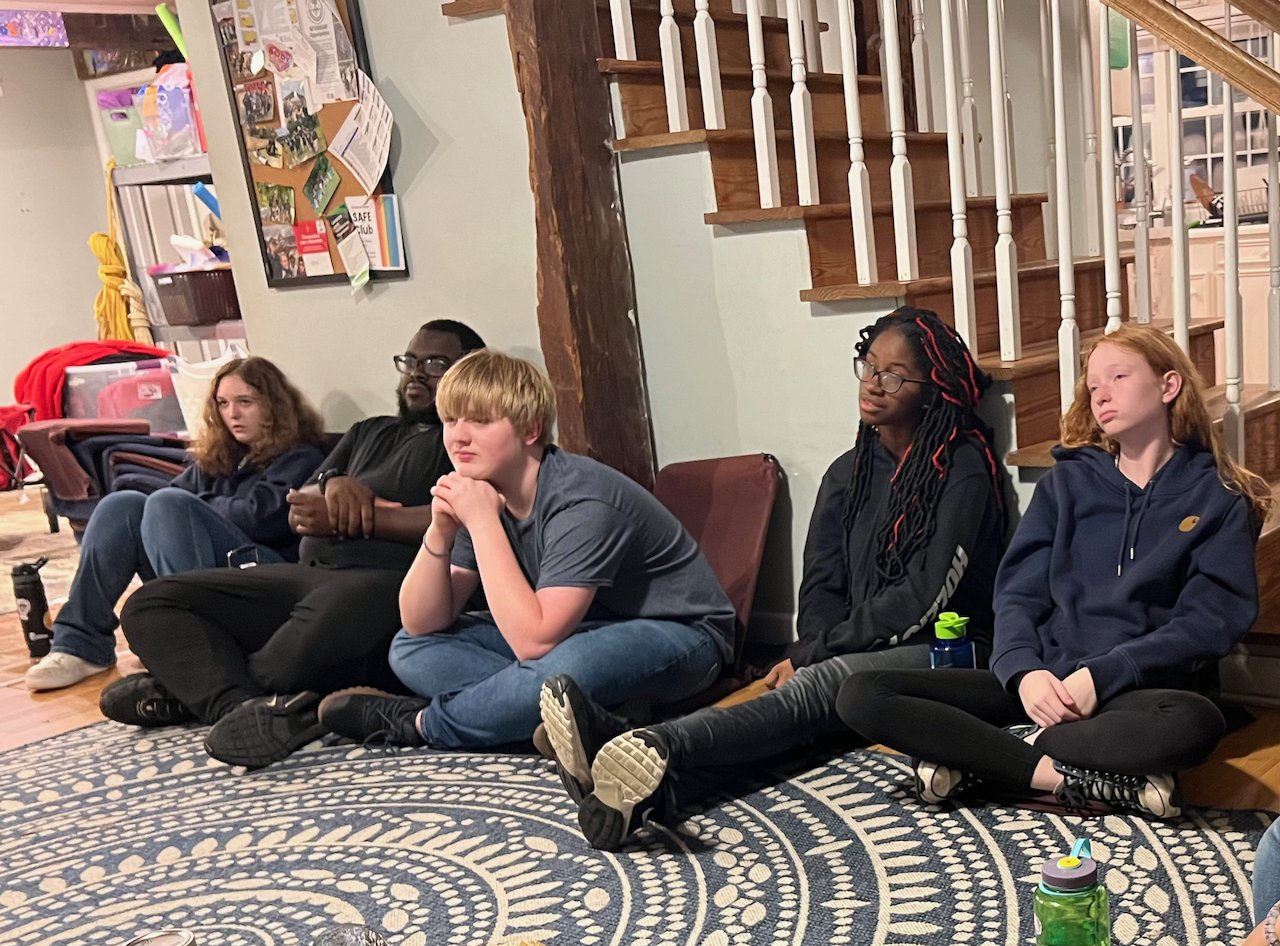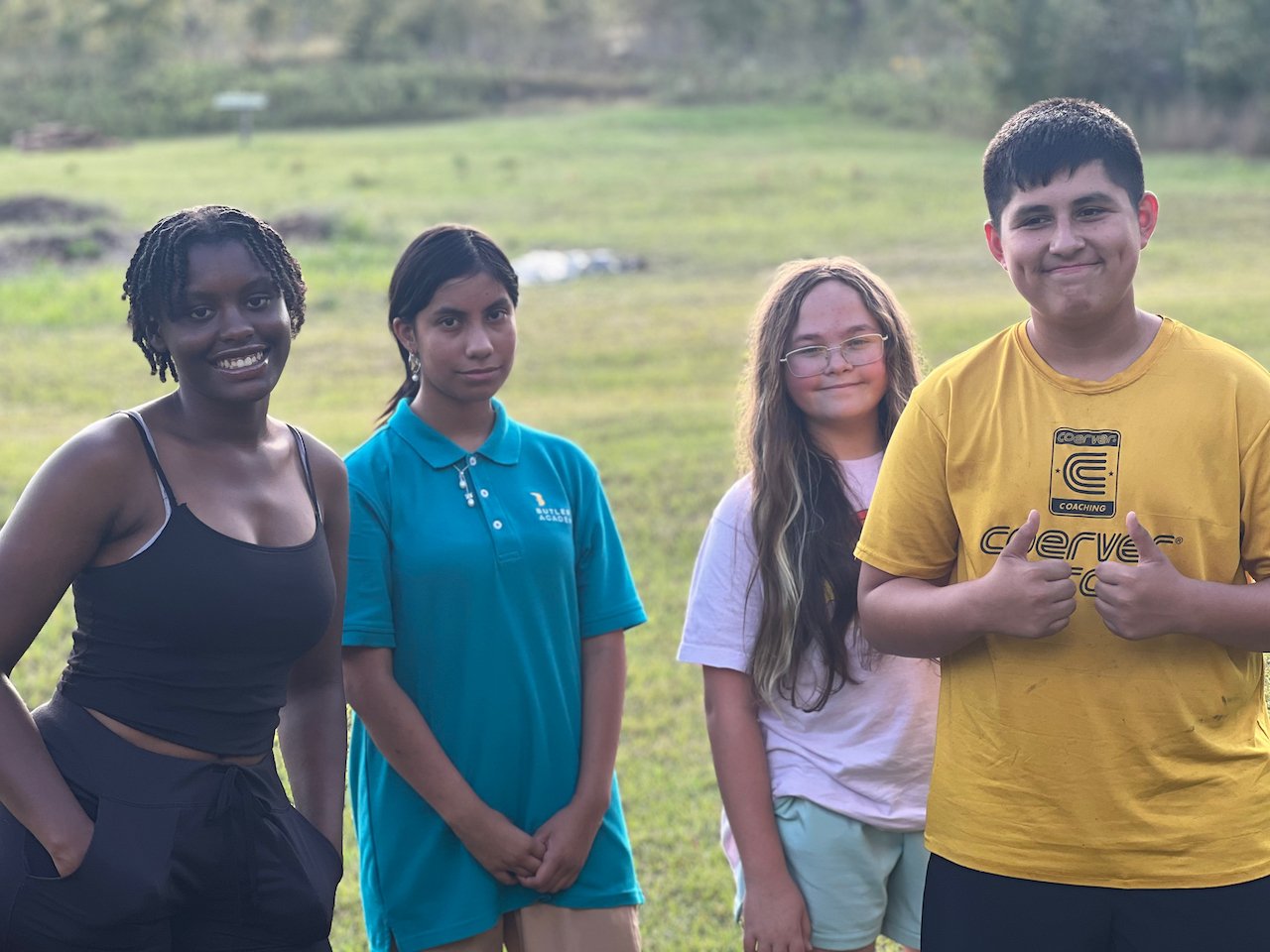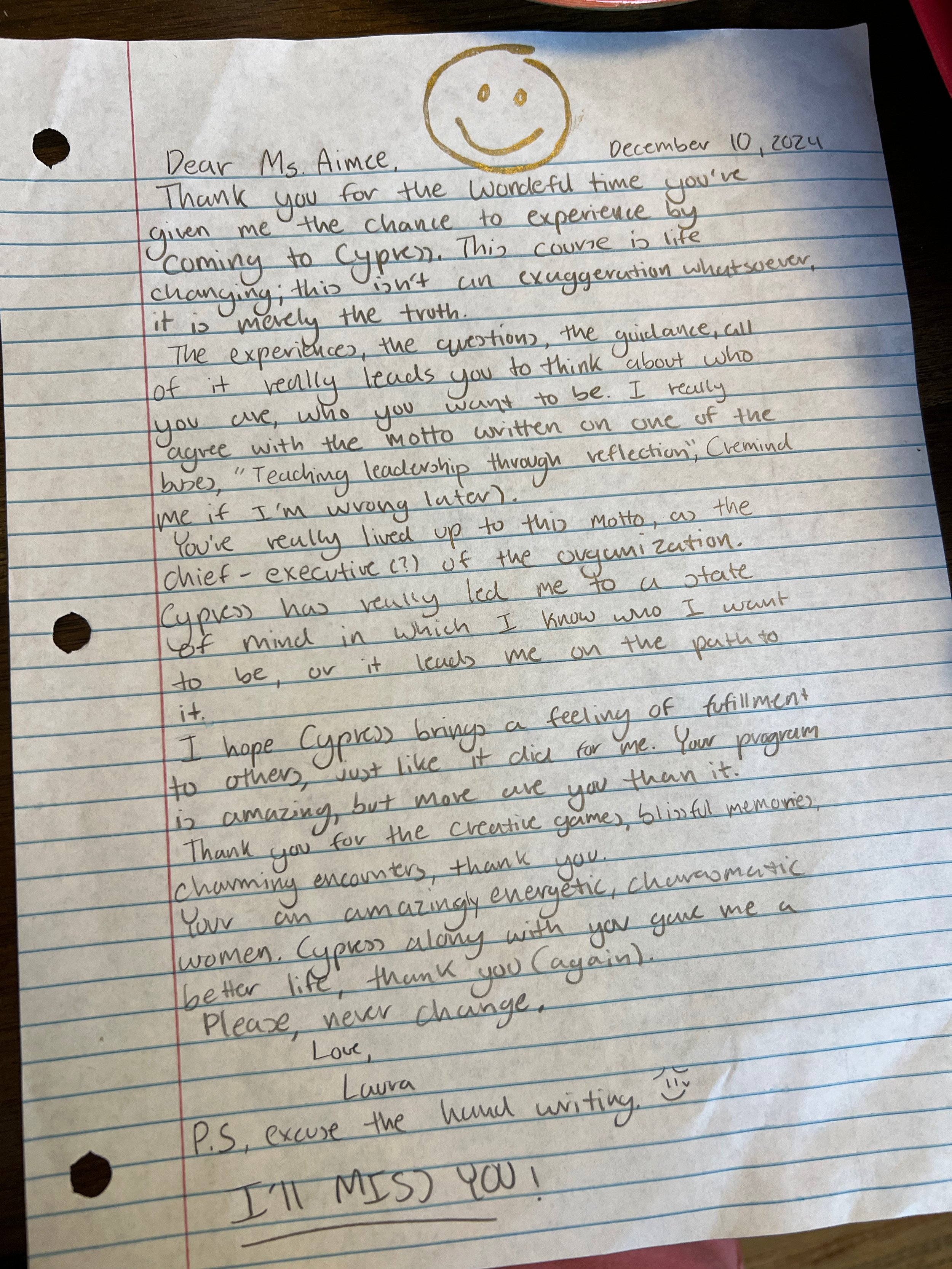Feeling an abundance of love
As adults, even if not consciously, we know that communication is made up of three things: verbal cues, non-verbal cues and listening. What I’ve learned over the past 20 years working with adolescents, is that teenagers usually have no clue what their non-verbals are communicating. What I've learned about humans in general over my 50 years on this planet is that most people are more concerned about verbally communicating what they think and believe rather than listening to consider, understand and respect what anyone else thinks or believes.
Adolescents on the other hand, they listen so much more intensely than adults think they do. Their facial expressions and body language rarely match up to what they are actually thinking and feeling. When I first started doing this work, I complained to my boss, these 'kids' aren’t listening to me. They are scowling at me. They hate me.” She told me, “Oh Aimee, you can’t judge a student just by looking at them. They have no clue what their face looks like.” I also had a friend who was a therapist for teens tell me, “I like to mirror their facial expressions for them until they ask me ‘what’s wrong’? Then I get a kick out of letting them know, ‘I was just matching your facial expression’, and watch their faces light up with hilarious awareness that their resting face is what they call a ‘mean mug’.”
Resting faces of adolescents
It’s one of the first things I prepare new hires for when they join our team here at Cypress: "Don’t judge yourself or what you're saying based on how the students are looking at you, or not looking at you, smiling or scowling. They have no clue what their faces are doing, yet. We help them become aware when we get to the 5-lesson series on communication. And trust me, they are listening closer than you may ever know, so remember how much words matter."
That’s why everything we do in the Youth Leadership Program is done as a group. The group process allows us to learn about ourselves through the reflection of our peers. It allows our peers to be our mirrors.
Case in point would be one middle school student in our Leadership 101 course. This beautiful, humble, highly intelligent, self-described as shy, 7th grader, barely spoke in the beginning of the 14-week course. I found her hard to read. I couldn’t discern if she liked coming to Cypress or if her family was making her come. While many of the other students in this group were highly expressive, both verbally and non-verbally, this particular student was reserved with her body language and verbal language. She listened, almost with a side-eye glance of skepticism. She rarely spoke more than a few words to me and only if I asked her a direct question.
Students posing for a photo. Expressive as compared to reserved.
With time, I saw bonds begin to form between her and the other students through the way she began to communicate with her peers during our activity transitions. Her communication became gradually more open and loving with smiles and laughter. I enjoyed watching the bonds forming and hearing her quick witted responses to the other students. I got to know her by listening to others’ appreciations of her in our closing circles. They would appreciate her for things like making them laugh, giving them a hug or asking if they were ok.
Sometimes, I am gifted with awareness of the impact our work at Cypress is having. Love notes seems to be a theme during this end-of-year campaign where we are celebrating the ripple effect of Cypress in the community. Or maybe I’m just paying more attention because of the campaign. This particular student surprised us all on the last day of program with a handwritten, full page letter, in which she spoke her truth, in detail, for each and every student and staff member. So few people get to see what we see and hear what we hear at Cypress. We hold in our memories a million beautiful stories of growth and challenge and triumph that truly deserve to be told. I hope this story, about this teenager, capped off with her letter to me, inspires you to have the patience to listen between the verbal and non-verbal cues to find the truth. I hope this story inspires in you unconditional acceptance that no one’s truth is going to look or sound just like your’s and THAT is what makes life beautiful.
Handwritten letter exclaiming, “This course is life changing; this isn’t an exaggeration whatsoever, it is merely the truth.”



